Greg Fields's Blog: Thoughts
July 8, 2025
Rhythm Lost
June 8, 2025
Willie in the Wind
January 22, 2025
The Coldest of Places
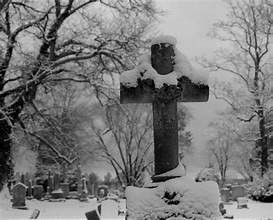
The snow came bitterly the winter after Willie Meadows buried his mother, the winds blowing so hard that the flakes felt like tiny darts. The city’s green patches disappeared, covered by growing heaps of white that progressively turned gray and black with the city’s grime. The exhaust of buses belched clouds into the crisp air, mingled with the flakes there like a whisper, then wafted upward into a sky covered over with heavy clouds.
She had been gone for four months now, close enough for the memories to remain sharp. The funeral mass, sparsely attended because Sarah Meadows had few friends, peopled with parishioners who saw the notice of her death, and Willie’s sister Jessica, flown in for the occasion, her first visit to the homeland in two or three years. The priest mumbled the proper words, the censor swung its smoky benediction, then the slow procession to the cemetery where Willie’s mother came to her final resting place. Cloudy that day, with a bit of rain.
‘Appropriate,’ Willie thought at the time. ‘Mom always brought the clouds with her, even on the sunniest of days.’
And even though Willie and his sister had made known that there would be a reception at the old home down the street, the crowd dispersed, no one close enough to Sarah Meadows to feel the sting of her departure sufficiently to prolong it over coffee and cake. Willie and his sister spent the rest of the day with only themselves, awkward time punctuated only by the safest of conversations.
“How’re the kids getting on?”
“Fine, Willie. Jamie’s in sixth grade now and doing well, and Tommy can’t find a sport he doesn’t want to play. And you, Willie? You’re all right?”
“Ah, Jess, always all right. There’s nothing to it. I take life with a grain of salt, and then I add a slice of lemon and a shot of tequila. Work’s good, the paper’s doing fine, and I have my life. No worries.”
“I wish I had your attitude, Willie.”
But there were plenty of worries. There always were, even though Willie would never think to bring them to the surface with his sister, more a stranger now than a sibling, far enough away and ensconced in a world she rarely left and into which she welcomed few visitors, none of whom was Willie. He hid from her as thoroughly as she hid from him. The way it was. The way it had come to be.
So that afternoon as the clouds leaked rain onto their mother’s freshly made grave, Willie and his sister drank their coffee and ate their cake and spoke the words that measured a safe distance. At the end of it Jessica took a cab to her hotel, slept well, then flew back to her world the next morning. Willie closed the house, then took his own train back to Washington.
Now, four months on, the snow coming down with a quiet ferocity, Willie thought on his mother’s grave. He had always regarded cemeteries as almost mystical, the repository of memories and the commemoration of life’s passing energies. The bodies there, each one the center of a web that spun outward into other lives, each gravestone a testament to the tyranny of time.
So there, across the miles, Sarah Meadows lay in her dark grave, beyond all sensation and sensibilities. There were no visitors, had been none since the day she entered that dark place. No flowers atop it, no one to clear the weeds, and now no one to clear the snow.
How cold it must be, and how very lonely.
February 12, 2024
Stairway to Heaven
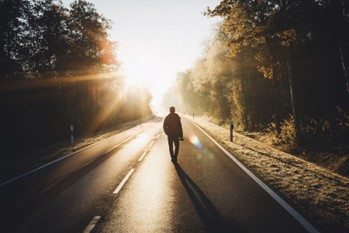
The call had come the night before from a voice at once mechanical and practiced at the disbursement of bad news, yet one which still sought to cultivate a notion of human compassion. Willie Meadows had just walked through the door of his apartment when his phone buzzed, and there it was. A culmination, then. Or maybe a reckoning.
Ater the call, Willie went to his cabinet and drew forth a glass, which he filled with ice and then filled with scotch. From there he found the tatty sofa, the one with the tear near the arm. Tears everywhere, it seemed. In the sofa. In the old mattress upon which he had slept since he had moved into this place years ago. In the corner of the carpeting near the kitchen. Tears, and rips, and rendings all around him.
She had meant it this time. On so many occasions Sarah Meadows had called Willie and urged him to abandon his own life for a few days and track north to the home where he had grown up and from which he had so eagerly fled those years ago. “I’m so sick, Willie, and so weak. I think this may be it, and I want to see you again. Come say goodbye.”
And each time had been a false flag, a little girl crying wolf in a meadow that ultimately proved safe, her fears merely the shadows of passing clouds blown by breezes that she found too harsh. Each time Willie had answered the summons, had spent time with his older, broken mother, then returned back to his own life, shaking his head as he did so and vowing never again to be so crudely used by a woman who had spent her life mastering the skills of manipulation. It was only a week ago that he had done so, and left the house at the end of his visit with the usual bitterness.
But last night it had been different. “I’m sorry, Mr. Meadows. But she passed quietly, with no fuss. Her heart just couldn’t take any more.”
Willie had said nothing, swallowed hard, then let the nurse continue. “We have standing arrangements with a local funeral home, and we’ll release her to them in the morning. The family can take it from there. I know her daughter has been in touch.”
Another pause. “Mr. Meadows? Are you there?”
“Yeah. Thank you. Just at a loss right now. Look, I’ll be up tomorrow afternoon. If there’s anything I need to attend to, anything I need to sign, I can do that tomorrow. You’ve all been very good to her. Thank you for that. I’m glad she died comfortably.”
He sipped his scotch and let it all settle. Gone now, all at once, after all these years. All these false alarms. All the pressures, the resentments, the passive anger.
Guilt washed over Willie Meadows like a driving rain that night, soaking him through. He could not sort out his feelings, his emotions running wildly in directions he could not control but always coming back to the notion of his own failings. He had left her behind, buried her spirit under his own ambitions, and now her body had followed. Gone now, and Willie still here, left behind to deal with the debris of what can no longer be changed, or altered, or softened.
He slept on the sofa that night, never bothering to change out of his clothes. Willie woke the next morning, his head shrunk several sizes too small, and tried to refresh himself with a long, hot shower. No use in it, nor any use in the strong coffee that he brewed and the two oranges he ate as his breakfast.
Shortly after the sun rose, Willie Meadows walked out of his apartment and made his way to Union Station, where he would find a train to take him to what was once his home. His mother now, on the other end of the line, climbing a stairway to heaven he assumed, justified at last in the fears that had consumed her, and lost now – forever lost – to her son’s touch, and to the forgiveness he so desperately sought.
August 22, 2023
The Sins of the Fathers

When the door to his room kicked open, Matthew Cooney curled into a protective ball on his bed, tucked his knees into his chest and sought to make himself as small as he could. His father tore the belt from around his waist, turned the buckle outward and swung at the prone boy laying fetal in front of him. The buckle struck arms and legs and ribs. Even in his rage, Mack Cooney knew enough not to aim for the head. It was not for fear of hurting the boy. But head shots left marks, and such marks begged questions that he preferred not be asked.
The first blow hit a shoulder and burned the flesh. The second blow found his stomach and burned the soul. Matthew closed his eyes against it, this inarticulate assault. He braced his muscles against the impacts, closed his eyes and whispered a Hail Mary. This would pass. It always did.
Tonight his father raged, swinging his belt with the vigor of a man seeking retribution against an unfathomable wrong. What that wrong was, eight-year-old Matthew Cooney had no way of knowing. A bad day at work, a cutting remark from a stranger on the street, perhaps his mother’s scowl when his father finally walked through their door, well past a dinner that sat now cold on their table. His father did not bother to explain his grievances as he pummeled his young son. He swung his belt and choked out animal-like sounds that a young boy could not decipher.
Matthew Cooney, the avatar of his father’s frustration and madness, his impotence and inconsequence, absorbed the beating. He did not cry. Matthew Cooney would never cry. His father would not draw the tears out of him, no matter the force of his fury.
At the end of it, six or seven strikes, his rage spent and his own shoulder aching from the throwing of the blows, Mack Cooney hitched his belt back into his place. “God damn you,” he muttered. “I wish you’d never drawn breath. Look what you’ve done to me,” then stumbled out the door. “Look what you’ve done to me,” mumbled into a narrow, empty hallway. Matthew heard thumps as his father lurched against the walls, heading back then out the door to find his next drink.
The young boy lay still to calm the fire of his father’s wrath. He did not try to reason its genesis. He had done nothing wrong, at least nothing that he could recall. Instinct told him that his sins were mere interpretations, that his father saw things his son did not, and that the violence of rage needed no provocation beyond the simple fact that he existed.
After some time Diana Cooney gently entered the room to check on her son. “Oh, Matty,” she whispered. Matthew continued to stare at the ceiling.
“I’m so sorry, Matty,” mumbled through a sniffle. “I couldn’t stop him. I couldn’t. Are you okay? Of course you’re not.”
Matthew turned to her. “It just hurts a little.”
His mother sat on the edge of the bed and gently stroked his shoulder. “Why does he do that, Mom? Why does he beat me for no reason?”
Sniffles gave way to tears, and Diana reached to hold her son tightly. Matthew did not move to her embrace, but neither did he retreat. In his mother’s embrace, Matthew smelled the tinny whiff of cheap whiskey. He had become accustomed to it, the same odor that wafted off his father every night.
“Your father is an angry man, Matty. It’s not his fault. Really, it’s not. And it’s not yours, either. It’s just the way things are, just the way he is. I expect someday you’ll understand it all better. When you’re older.”
“And when I get angry, too?”
“Pray God that the rage passes you by, son. The rage that landed squarely in your father’s heart.”
“Does he beat you, too, Ma? The way he beats me?”
“Don’t concern yourself with that, Matty. I’m fine. He’s still my husband, and still your father.”
“Sometimes I hear things that sound like he does, but I just hide my head. I crawl under the covers until it all goes away.”
“We look out for each other, don’t we, Matty?” Diana Cooney sat back and reached into a side pocket to draw out a flask. “I know what your father did hurts, and probably hurts a lot more than you show me. Here….” And she offered the flask to her young son. “This helps take away the pain.”
Matthew looked at the flask, then back at his mother. “What is it?”
“Never mind what it is. I think it’ll help you. It’ll help you sleep. It’ll help you forget this very bad night.”
“That’s the stuff that makes Dad crazy. Why are you trying to get me to drink it.”
“Because it calms the heart and soothes the soul. Try just a sip. To take away the pain.”
Curious, Matthew tentatively grabbed the flask. He held it to his nose and sniffed the bitterness. His mother had always tried to protect him, to do what’s best for him. He trusted her. There was no one else to trust.
He lifted the flask and let a few drops fall onto his tongue. And with them, they echoed the burn from outside his body and caused his tongue to flame. But he did not spit it out. Very gingerly he drew the liquid back to his throat, then swallowed. Fire raced down the length of him, and his stomach roiled at the impact.
“Jesus, Mom. That was awful.”
“Don’t think about the taste. Just let it sit there inside you and calm you down,” she said, and for the first time all night she smiled. “It’ll do that.” She rose then, kissed her son on his forehead, turned toward the door.
“Good night, son. You’re strong, Matty. Don’t ever forget that.”
Diana Cooney turned off the light as she left, but her son did not sleep. In the small room that was his, he listened to the night sounds – the passing of cars on their dingy street, the clatter of metal doors that closed, the voices of those who still wandered this part of the city. His father was out there, one of the wanderers.
Matthew Cooney wondered where that wandering led him, what he would find when he got to wherever he bounded. A space without a son, it would be, and without a wife. Without a home to drag down his besotted, lost dreams. A space where his father, Mack Cooney, could extinguish his anger at least for a time before it rose up again and consumed all those unfortunate enough to have to share this life with him.
The young boy, son of the father, at last turned toward the wall and pulled his covers tight. His head felt lighter. Perhaps it was the drink his mother had given him. Perhaps there really was something to it that calmed the heart and softened the soul. His shoulders ached, as did his ribs, in all the places where his father’s buckle had met its mark. Sleep would come, fitful and unfulfilling, but on this night, the best he could do.
April 2, 2023
The Cooing of the Mourning Doves

Cooney turned his back to the rising sun and made his way down wind-blown streets littered with shreds of newspaper and fast-food wrappings that tumbled through the gutters. A poor night’s sleep, and the continuing elegy of a mourning dove in the tree above him led him to abandon any effort at rest. An elusive concept during the best of times, ‘rest’ now meant for Cooney only the immediate absence of tension. Nonetheless uncertainty and discontent burbled constantly just below his surface. He could not hide this, and so he spent most of his days now in an aimless ramble around his dirty city.
Too long he had done this, and on most days he felt beyond his years, made old by the lack of warmth, the lack of comfort and, most of all, by the lack of purpose. He had once been a brutal young man, taking what he could by guile, by strength, and by force. But what had it served him, really? All he had managed to do was steal the means to bring himself to another day, and the need to steal again. But in the contorted values of the street, his ability to bridge the years, to live as he had for so long when most fell away into incarceration, madness and death, brought him a respect he could never have earned elsewhere. This was where he belonged, and he knew this. Even so, such knowledge brought him scant comfort.
‘An elder statesman,’ he mused to himself. ‘I’ve become an institution.’
It was to the mission that he wandered this morning, a safe haven for coffee and a muffin, which he needed, and a soft prayer from Fr. Cleary, which he didn’t. It took the abiding of one to secure the other, though, and so Cooney took his place, bowed his head and waited for the reward. It did not matter that the muffin might be a day or so old, or that the coffee came too cold for his liking. What mattered on these mornings was that it was there at all, and he did not have to steal it.
Across the way sat a young man he had not seen before, as tattered as the rest, but going on about who he was and what he was going to do. “I love this city,” he said too loudly for those around him who really weren’t at all interested in hearing him. “Do you know how many rich people there are in this city? Businessmen and lawyers and doctors, and not a damn one of them has a clue. They don’t see us, and they don’t know me. We’re invisible, and don’t you see how that’s all to our advantage. Come and go as we please, and take what we want, and still they don’t see us. And after this quick meal, I’m back out there again. God, I love this city.”
Cooney regarded him slowly. He had seen others of this stripe, all coming and going with a bravado borne of fear. It was never that easy. There was the taking, perhaps, but then, after the taking, what did you really have?
“You know, lad,” he at last said, interrupting the other’s soliloquy. “There are better ways to live.”
The younger man snorted in reply. “And if there are, old man, why aren’t you living them?”
“Because I can’t. And neither can you. We’re sewer rats, lad, scurrying about for pieces of bread and the discards that other people don’t want. But it’s who we are.”
The other flinched, and arched his hand toward Cooney. “I’m no rat, old man. And your day is done. These streets, this life, belongs to the young ones who are strong enough to take what they want. We do things differently now. And I’m so different from you that we might as well be separate species. Man and rat.”
Cooney took his napkin and his cup, then rose from his place. “We’re no different, lad,” he sighed. “You just haven’t learned that yet. But you will. And when you do, you’ll look at things a new way. You’ll be sad, I’ll wager, and you’ll be less likely to beat up the things that stand in your way.”
The younger man glared up at Cooney, who continued in soft voice. “You’re young,” he said slightly above a whisper. “And you’re a fool. I hope some wisdom comes to you before you spend yourself into these streets, and have nothing left.”
Cooney tucked away his garbage, then up the stairs to the exit. He would spend the day in the square. It would be nice enough to sit outside, a cup by his feet to beg silently for the discards of those who passed him by – the businessmen and the lawyers and the doctors. There was nothing else to do, and soon enough the day would end, and he would be left once again to the rumbles of the night, and then the mournful cooing of the sad doves.
January 21, 2023
In the Shadows of Moonlight
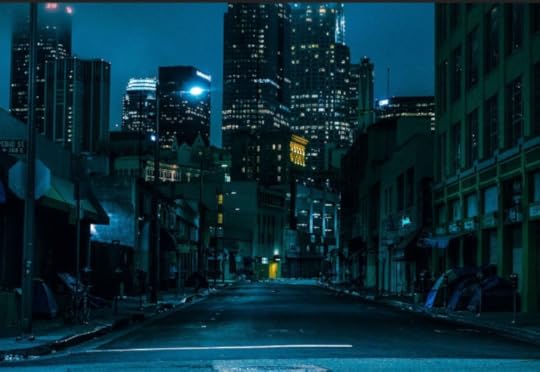
In the lean years, before the end of it all, before the final curtain, Emma Mannion thought little of her past, little of the rutted and silty pathways that had brought her to where she was at the age of 60. It had been too difficult, all of it. She had no stomach to experience it again through memory.
Whatever stability she enjoyed resulted from the largesse of her parents, well heeled, well enough off, and generous to a fault. Despite their sour view of the course of their only daughter’s adult adventures, they had regularly supplemented her fragile income whenever she asked, and sometimes when she didn’t. When they passed within six weeks of one another, common victims of a vicious flu season and too many years spent stressing over the things they could not control, their assets passed to Emma. Nothing amazing – they weren’t astoundingly wealthy, and their estate would provide nothing in the way of upward mobility. But there was enough there to spread out over the remaining years of Emma’s life if she were careful. She would never have to work again if she didn’t want, provided she lived in the same simple house in the same simple neighborhood. Well enough, it was.
And so in her 60th year Emma Mannion considered that she had her place, or what passed for it. She had her home, she had an ample supply of the favored spirits – gin, scotch, bourbon, and beer to smooth it down – and she had her son.
What she didn’t have were dreams. Those had died slow, painful deaths through the pressure of obligation, the neglect and abuse of her long gone husband, the demands of being a mother and the pulse of lost time. With neither dream nor vision, Emma followed her days one after the other, subsumed by ennui, bitterness and the constant, numbing drip of hours that meant nothing and were best spent as insensate as she could make herself.
She still worked many days although fewer than before. Emma had abandoned office work, the tedious repetition of being yet another man’s assistant, and so had traded her secretarial position for a part-time job tending the counter of a convenience store that sold tacky food, lottery tickets, and gasoline. The hours were odd, the customers even odder. It was something to do.
Amusements arose where she found them, mostly in the form of chatty gossip with longstanding neighbors who knew Emma’s quirks and abided her nonetheless. Mornings and afternoons could be spent walking the neighborhood and sharing news and views with others whose days also rang hollow, those she had known since coming to this tatty place more than four decades prior. The same faces, the same jaded, cynical postures, and, really, the same stories acted out with the same characters. The same crimes, real or imagined, the same indiscretions, the same flirtations, the comings and goings of the same wounded souls.
There was Donal, of course, but as he had grown older he commanded less and less of her time. By the time he hit adolescence he seemed to know his way around and through these streets. And he had friends to help him along the way, a rough lot for the most part but young men whose own edges had been sharpened by whatever whetstones their younger years had forced on them. They looked out for each other, protected one another, and gave no thought to their own vulnerabilities.
Donal, possessing both his father’s charisma and his father’s inclinations. Woe be it to him, but there was nothing she could do about it.
“No worries about me, Ma. I’m fine, and I’ll always be so. There’s nothing to this life except jokes and fancies.”
But the jokes turn sour and the fancies become tawdry, she thought now as she sipped the strong whiskey that coated most of her nights. She gazed toward her front window, awash in the brilliant, rare light of the fullest moon she could remember. The strange light cast wispy shadows across her threadbare carpet and against the far walls. A miraculous light, it was.
‘Donal was born under a full moon. Come into this world with a brightly lit squall, and has been played against the tempest ever since. Ah, but the lad has spirit.’ She sipped again and leaned back into her chair. ‘And sometimes spirit is enough.’
Emma Mannion took one last pass around her small and worn house, placed the empty whiskey glass in her sink, secured the front locks, and headed up the stairs to her bed. Tired, she was. So very tired, this night, and all the others. The day’s final washings, and then into a bed as empty as her heart, where she would once again regard the spectacular moon, and the light it shone on the hidden corners of her exhausted soul.
October 9, 2022
Living in a Free State
Vanity of Vanities; all is Vanity – Ecclesiastes 1:2
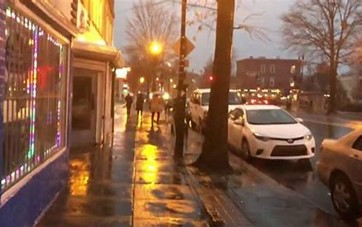
Another day to the streets, the crawling, creeping, beeping streets and those who drove them. It had been three weeks now, and Donal Mannion had found his place. A revelation it was, to recognize that that place was behind the wheel of a taxicab, but his life to that point had carried its share of surprising revelations. This was no different, really, and, on the whole, a bit more reassuring than the other realities that had punctured his younger years.
The panoply of characters that crawled into and out of his cab kept him fresh. Stories floated through the air like the scattered remnants of dandelions, and his capacity for absorbing them, for finding each one peculiar in its own way, made the days pass sharply. At first, during the early days of his driving, he just listened, the ready ear that many of his fares had sought. But occasionally there would be a tale, or a lament, or a loss, that touched him inexplicably, and he might offer a response. Nothing profound, or much beyond the acknowledgement that his passenger had been heard by another human being, and that that human being had a like heart. It was enough.
In the late morning a young man, tattered and more than a bit disheveled, flagged Mannion down near Union Station and gave him an address in the northeast part of the city. The young man settled into the back seat with a dirty backpack and muttered a profanity.
“Rough morning, is it?’
"No rougher than most. It’s the nights that you have to be wary of.”
Mannion drove, and the two said nothing until the cab turned up New York Avenue. It was the driver who broke the silence. “We’re heading for my old neighborhood,” he said. “I grew up on these streets. Never really left them behind.”
“No one ever leaves these streets,” said the young man. “It’s what we’re born to, and there’s no call in fighting it. Just make the most of it all, and grab what you can.”
“Has the grabbing been good for you lately?” Mannion asked.
The young man smiled and leaned forward, his arm on his backpack. “Yeah. A good week this has been. Let me ask you, did you ever have a really good teacher? Someone who taught you everything you really, truly needed to know, then showed you how to make it work for you?”
“If I did I wouldn’t be driving this cab.”
“I do. Knows everything there is to know about these streets. Who walks the sidewalks and where they live. How they live. And what you need to do to find your way through them. How to take what you need and never think about the costs, then disappear like a whisper. Do you know how much freedom there is in knowing these things, then having the courage to act on that knowledge?”
“You sound to be fortunate young man,” said Mannion. “It’s the brave who are truly free. The rest of us cower into our little holes and mistake safety for comfort.”
“You know these streets, you said. Do you still live around here?”
Mannion chuckled, “And if I did, would I be telling that to you?”
“No worries,” replied the other. “You don’t seem the type to have riches stored up, at least to the point where it would interest me.”
“Ah, the storing up of wealth is the stuff of vanity, haven’t you heard? I’m a simple man, my young friend. And I’ll spend the rest of my days in that simplicity.”
“But you’re not brave.”
“No. Not brave at all. I’m as courageous as a churchmouse.”
“Then you’ll never be free. And there’s great freedom to be had on these streets.”
Mannion pulled the cab to the curb. “Here we are. It’s $6.50 on the fare.”
The young man pulled a $20 from his back pocket and gave it up the seat to Mannion. “No change needed.”
“Jaysus, that’s generous.”
The young man stepped out of the cab to the curb, then leaned over to the driver’s window. “Consider it a gift from the Free State of Andrew Gentry”, and with a laugh he turned to the streets and lightly strode into his new day.
July 10, 2022
To See Through the Dark
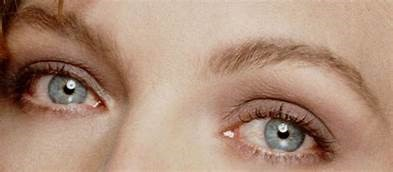
For Conor Finnegan, the drive north was a drive into his past. Out of Washington on Interstate 95 and through the mangle of Baltimore on the way to the blink of Delaware and the sprawling mess that was Philadelphia, and then changing to the road to the coast, through the flatlands of New Jersey. Each time he made this drive Finnegan felt young again, the spirit of the naïve and wondrous lad who first came to this place so many years ago, this place of departures, where old certainties became banal half-truths and new realities spun him off his self-assured gyrations. Conor Finnegan loved New Jersey.
He made this drive now out of confusion and wonder. When he experienced such things, he sought the ones who knew him best, the ones who could strip away the veneer that comes from overthinking things. Dan Rosselli had been Finnegan’s college roommate for four years, both of them emerging from the cocoon of a fallow youth together. They came to know each other as brothers, intuitively sharing their times, their thoughts and the marrow of their souls.
Now, thirty years on, their closeness mellowed with age and wisdom, they remained close. Rosselli, a prominent plastic surgeon, still lived near his boyhood home on New Jersey’s coast. Finnegan turned off the highway to the local roads that led to the club where he would meet his friend for dinner. A tawdry, faded blue sign, too large by half, welcomed him to Asbury Park. ‘The town that gave us Bruce Springsteen and Dr. Daniel Rosselli,’ he thought. ‘Who says there’s no diversity in the suburbs?’
Later, after two scotches, a full dinner and countless reminiscences, the two sat in the curved seats of the lounge. Rosselli had been a member of this club for years, twice serving as president. He knew it to be a charade, but it was one he gladly played, a manipulated prestige. But this club had its comforts. It was the only private social club on the Jersey shore between New York and Atlantic City, open to anyone who could pay the outrageous initiation fee. And now, in the corner of the lounge, Rosselli and Finnegan sipped their port and felt the warm glow that Finnegan had anticipated, the glow that would provide assurance, and a safe space.
“So tell me about your love life, Conor,” Rosselli said with a Cheshire-cat grin. “Tell me about this new woman.”
‘What makes you think there’s a new woman?”
“You’re as subtle as a runaway bus, my friend. There are moons in your eyes. I thought you had passed that stage.”
Finnegan leaned back and looked out the window onto the water. “Ah, Danny boy, the central question. This new woman. Adrienne.”
“Gorgeous, I assume. You’ve always had high standards.”
“Yeah. Gorgeous, and well out of my league.”
“As are most women.”
“As are most women. But Adrienne is special, my friend. Blond, petite, heart-shaped face. Soft voice, as gentle as a whisper. But it’s her eyes. My God, Dan, I’ve never seen such eyes. As blue as a summer sky. And wise. Those eyes see things no one else has ever seen. Sometimes I think she’s some type of sorceress. She’s told me things about myself that I’ve never acknowledged.”
“How’d you meet her?”
“At the airport. Crowded morning with no place to sit at the Starbucks. The only empty seat was next to me. We hit it off right there. Had dinner together that very night, then off to it.”
Rosselli sipped his port. “Sounds serious, Conor.”
“I think it is. So should I dive right in?”
“Only you know that. But trust her eyes. If she’s looking at you, if she’s looking into you, then there’s something there that’s far too rare. And it looks like you have no choice in the matter. You’re as stuck as a fly in hot tar. Danny boy can always tell.”
They finished their port, then hugged their goodbye in the lobby. Finnegan usually dreaded the three-plus hour drive back home in the dead of night. But not this time. The eyes. He trusted the eyes. His, to see through the dark.. But especially hers, to see through the fool.
May 7, 2022
A Bit of Heat, A Bit of Light
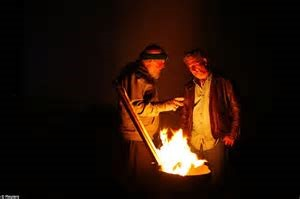
Winter swept into an April night like a vapor, crawling under doorways and wafting itself into the air, chilling what it touched and numbing those who touched it. April, when daffodils poked their tender heads haltingly toward a nurturing sky and birds hopped from branch to branch, reveling in the simple pleasures of sun and seed and song. When a man’s thoughts might turn to dance and music and love itself.
But on this night winter made a reappearance, a final thrust across a city at once too eager to see it go. Families huddled in their homes and turned their thermostats up. Cabbies drove with their windows rolled up tight, and the windows of buses fogged up with the moisture of artificial heat. Grocers sold hot chocolate and marshmallows.
In Farragut Square, Matthew Cooney hunched on his usual bench. The iron slats ran shanks of cold along the back of his legs, and he arched his shoulders forward under the tatty blanket that had tried to keep him warm for years. Another night at least before he could stuff it into his backpack and pretend that he might never need it again.
Next to him sat one of the other regulars. James, his name was. Never ‘Jim.’ Or, God forbid, ‘Jimmy.’ He would react almost violently if someone called him that “My name’s James, God damn it. James. Jimmy, that’s a boy’s name, or something you sprinkle on ice cream.” Sometimes the teasing would continue, though, the taunts from those younger, and bolder, and stronger. James wore the broken teeth and battered bones with pride that he stood up for something. “I’m a man, Matthew,” he had told Cooney when they had first met. “A man with a man’s name. Don’t ever call me Jim.”
Now James sat with his shoulder against Cooney’s, and the two of them tried to breathe warmth into their hands.
“Ah, Matty. We should be sittin’ someplace warm. Not stuck out in this damn park with nothing but our wits to keep the blood circulating. And pass me a bit of that bottle, would you?”
Cooney obliged, and James took a deep draught of the cheap brandy Cooney had snuck out of a package store around the block. Nasty, it was, but its fire lit the belly.
“Nah, James. Nothing warm for the likes of us. We’re living the pure life.”
“Christ Almighty,” and James took one final swig before passing the bottle back to Cooney. “Think of all the worthless bastards that are sleeping in warm beds tonight and wrapping themselves around their women. And none of ‘em any different than us. Flesh and blood and dreams, just like us.”
“Ah, that’s where you’re wrong, Jamesy. We’ve the flesh and the blood, but the dreams are gone. Don’t really know what happened to them either. But gone they are, and we’re left with what we’re left with. And tonight that amounts to this bench, and this brandy, and blankets with as many holes in them as our souls.”
“I’d like to get my hands on one of those rich bastards,” James said. “I’d show him what life is really like. Maybe toss him into a trash can and light it on fire, just to keep us warm for a bit.”
“And what would that do, James? You’d show him what life is really like, you said, but what would he learn? We build our own boats, my friend, and it’s those boats we must sail. He sails his, complete with the dreams we’ve lost, and we sail ours.”
James looked hard at Cooney, who continued softly. “I don’t resent those who’ve made it, James. They’re part of the game, don’t you see? Every day we play the game, seeing what we can get away with, seeing what we can take. Seeing how we can kick ourselves up a notch, or maybe knock someone else down. If there were no rich bastards, there’d be no game.”
“Not sure I understand you, Matty.”
Cooney smiled, and sipped from the bottle. “Not sure I understand myself, James. There’s some newspapers under that bench over there. Go grab ‘em up and we’ll see if we can burn up this trash can. A bit of heat and a bit of light. That’s all we need. That’s all anybody needs.”



